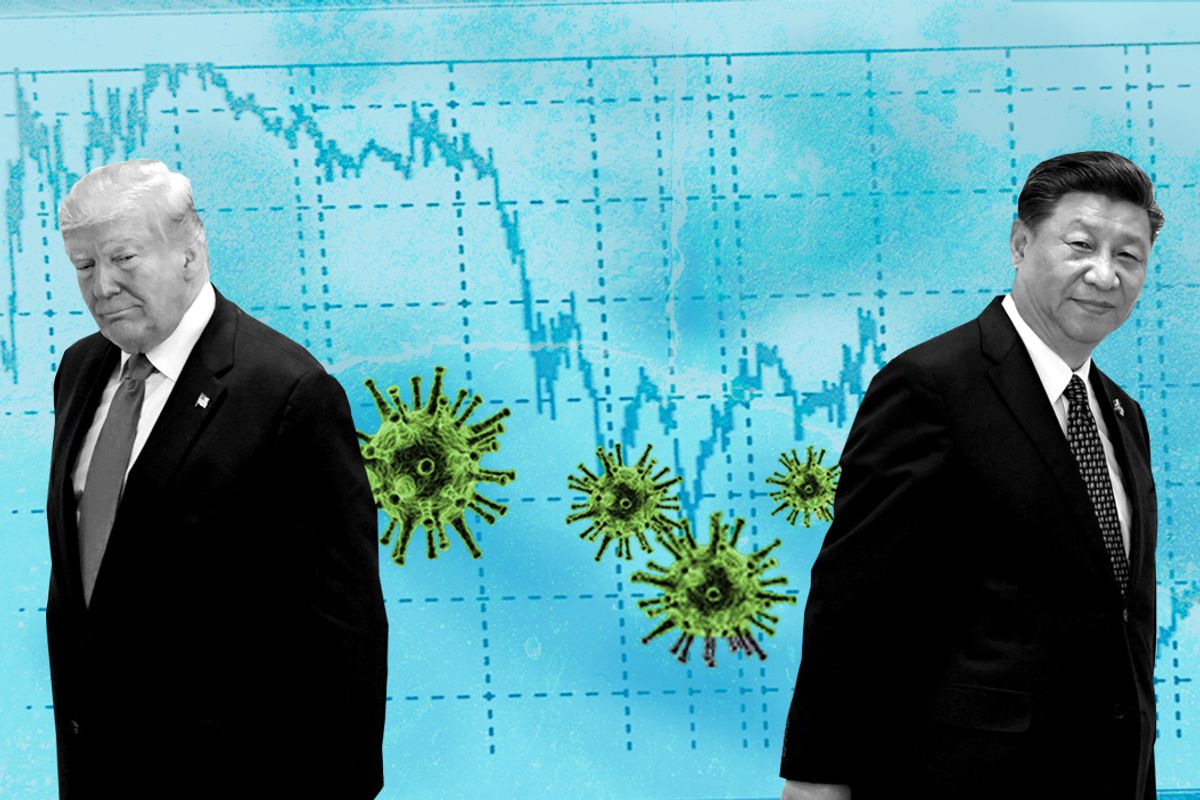Read our roundup of COVID-19 themes and stories from around the globe.
The pandemic deepens US-China tensions – Rows over trade and technology have put a massive strain on US-China relations in recent years, tensions that the coronavirus pandemic appears to have deepened. On Tuesday, the Chinese government expelled 13 American journalists from the Wall Street Journal, the Washington Post and the New York Times. The move is part of a tit-for-tat over journalists that has already seen each country kick out a handful of the other's reporters. But the coronavirus crisis has now stoked fresh acrimony, with each side accusing the other of spreading "disinformation" about the virus (a Chinese official recently claimed that the US military brought the infection to the region). It's not entirely clear why China took this step now. As we've noted here, Beijing has become an important partner for countries in the West, particularly in Europe, that are now grappling with the pandemic. So it's entirely possible that China wants to keep the focus on that, while avoiding any more independent scrutiny from foreign journalists of its own handling of the outbreak, especially as it prepares to lift some of the quarantine measures.
COVID-19: the perils for migrants – Lacking access to healthcare and often stuck in precarious living conditions, asylum seekers are especially vulnerable to the spread of contagious disease. But they are also vulnerable to the measures that governments are taking to stop the spread of coronavirus. The Trump administration is floating fresh restrictions on migrants seeking refuge in the United States, according to reports, just as healthcare workers warn of a potential coronavirus outbreak near the US-Mexico border. Meanwhile, the European Union's decision to shut its borders over COVID-19 heightens the anguish for thousands of asylum seekers and refugees, many fleeing violence in Syria, who are now trapped in no-man's-land on the Aegean islands amid ongoing tensions along the Greek-Turkish border. Although several European countries recently agreed to take in more migrants – unaccompanied and "very sick" minors – the UN refugee agency is now temporarily suspending resettlement for thousands of refugees because of the new EU border restrictions. That means many more refugees will languish in camps where, even in the best of times, diseases and superbugs thrive.
Venezuela forced into COVID-19 isolation – In recent days, both Colombia and Brazil have shut their borders with Venezuela, over fears that the steady stream of refugees fleeing the country's grinding humanitarian crisis could be a major vector for the spread of COVID-19. The concern is understandable, especially for Colombia, which has already absorbed more than 1.3 million Venezuelan migrants. After years of economic mismanagement and crisis, Venezuela's healthcare system is severely depleted, hospitals can't count on running water or power, and the government is all but broke. It certainly doesn't help that prices for oil, Venezuela's main economic engine, have plunged as a result of the ongoing Saudi-Russia price war (which you can read about here.) Venezuela has already reported several dozen cases, but the numbers could soon rise catastrophically. Underscoring the severity of the crisis – as well as the topsy-turviness of the world right now – President Nicolas Maduro has sought $5 billion worth of help from a most unlikely source (at least from the perspective of the die-hard Chavista revolutionary): the International Monetary Fund. The fund, which his predecessor Hugo Chavez once wanted to destroy, promptly rejected the request, saying it can't move until there is international consensus on who is actually president of the country. Much of the world recognizes the head of the legislature, Juan Guaido, but Maduro is still functionally in charge.


















